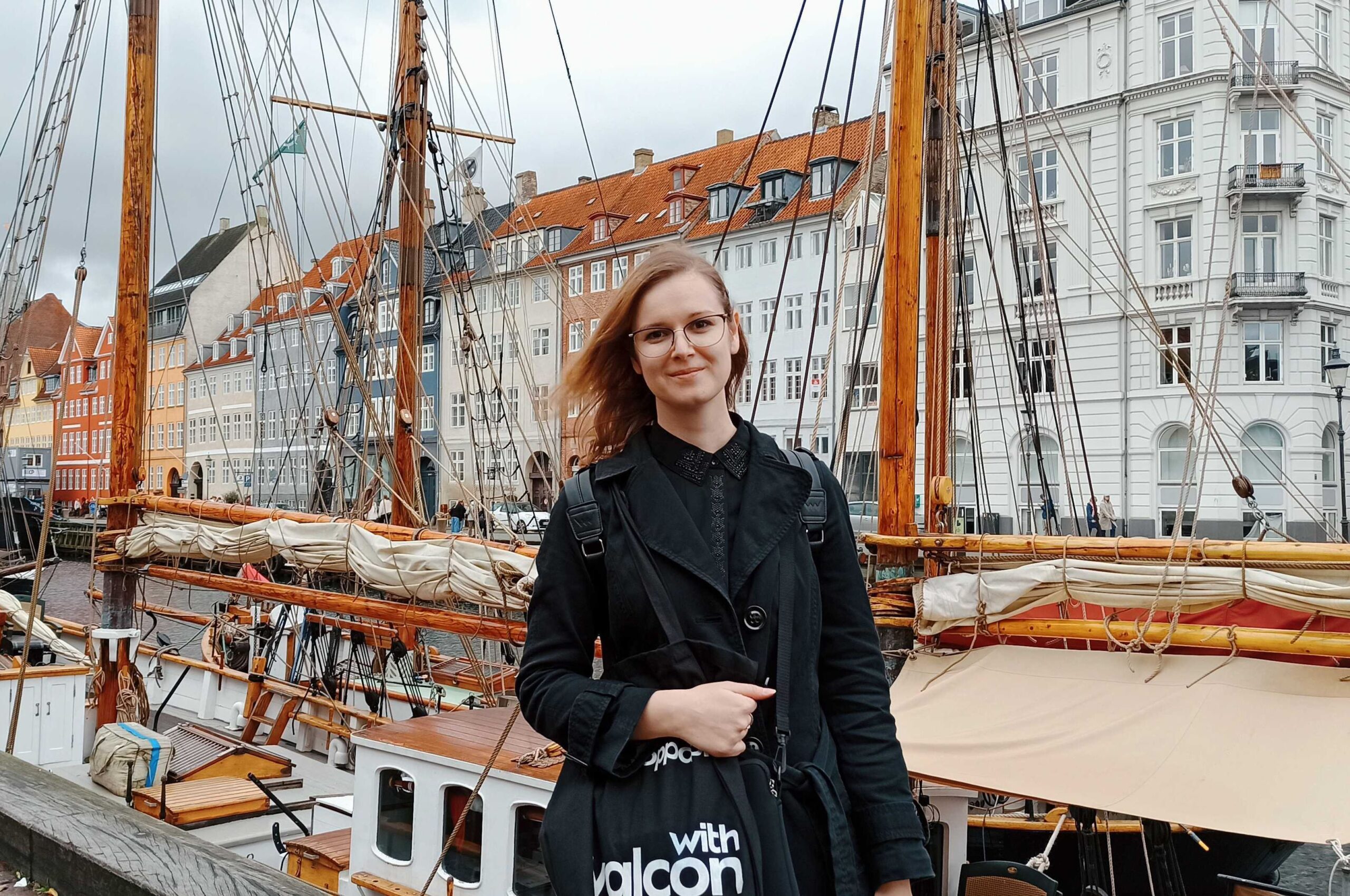Stuart McDonald, Data Partner at Valcon, recently spoke to Martin Waudby, Chief Data Officer and Brendan Kelly, Data Governance Lead at the London Borough of Camden Council, about Camden’s Data Charter and how the council is leveraging citizen data to improve services, positively engage with communities and inform its future direction.
Q: Could you tell us about your careers and what led you to your roles in data?
Martin: I started working in private sector roles, where I got my grounding in technology and data building EDI systems. A pivotal moment was when I moved into the civil service. I became more involved in looking at bigger picture data and technology strategies for government departments like the Home Office and the Passport Office. I enjoy working for Camden Council because there is a real opportunity to drive public sector reform, as people’s interactions with government tend to be on a local government level, through things like education and children’s services, or housing and waste collection, for example. One of the great things about Camden Council is the sense we are driven by a sense of purpose and want to make a meaningful difference to people’s lives.
Brendan: My journey has been less conventional. I started my career in teaching English but decided to move into IT, where I worked in desktop support. I moved to the projects team at Camden, ending up on a big master data management (MDM) project where I began to see data as an enabler in the public sector. My teaching gave me a good grounding in helping people understand complex concepts, fundamental to my role in data literacy and governance.
Q: What are the biggest challenges facing UK councils with regard to data in 2025?
Brendan: Funding of council services is tight, and they are having to save costs where they can. Data and AI will have big roles to play in helping councils find those savings.
Martin: Yes, it’s about funding. With budgetary constraints, councils need to deliver more with less, and data and AI can help us do that. There is also the opportunity to partner with private and public bodies and their role in the services we deliver. At Camden, we have put the building blocks in place, so our use of data is more user and business-focused – staying close to the business helps us discover the problems, before identifying the appropriate use of data and AI to solve them.
Q: How has the data function at Camden evolved?
Brendan: The data function has completely transformed in the past ten years. People across the council have been incredibly good at adapting to the different stages and using technology and data to help deliver services. Data literacy and people’s understanding of how data can be better governed and utilised are huge enablers for the next step, and that’s improving all the time.
Martin: My predecessor, Beata Lisowska, did a fantastic job of starting us on the journey to fix the foundations, getting core infrastructure in place and fostering data excellence. She did a lot of groundwork around the professionalisation of the data team, a legacy that we have continued, as we focus on bringing in the data roles the organisation needs. We wanted to move away from a siloed way of working, so now have a federated model with a central multi-disciplinary data team, with data analysts embedded in different areas throughout the organisation – they are close to the business problems and the data to solve them. The cohesiveness of our team really helps – communication, engagement and transparency are core tenets of how we work, and the democratisation of decision making has been key to the success of our data function.
Q: Can you tell us about the Camden Data Charter?
Brendan: We mapped out the Data Charter project with the Alan Turing Institute, whose approach was to get the residents to work with us to write it. We held a series of engagements with resident panels who helped us draft it and it includes ethical assessments and AI risk assessments. The success of these engagements has led to a new series of events with our residents called ‘Camden Talks Data’. A new version of the event is being hosted by our adult social care service with people who draw on care to talk through how their data is used to deliver services to them
Martin: The Charter lays out our commitment to residents, agreed with residents about how we use the data we gather to improve outcomes through the improvement of our services. The engagement with our resident panels has been vital – at the start of the journey, we sought permission to use their data, and now we have discussions around how we use that data, and outcomes as well as talking about approaches to data privacy and AI, etc.
Q: You recently won the IRM award – can you tell us what that was for?
Martin: It was for our Data Charter and work related to data governance, specifically
Brendan’s development of data maturity pathways – the team is in the process of going through every service to identify the data maturity level in each, before agreeing on an action plan to improve data maturity and culture and implement the plan. Camden is seen to be a leading light in data governance, and if the industry is recognising that, it’s a real vindication of what Brendan and the team are doing. Our Data Charter is also recognised as best practice for transparency and accountability in the Government’s blueprint for modern digital government
Q: How do you think AI will be deployed to help councils over the next ten years?
Martin: There is a lot of hype around AI, and with new technologies can come unintended consequences, but there is still enormous potential and benefit to making use of AI. We have a vision of shifting to a next generation of data-driven public services focused on prevention and early intervention. AI and data can have a crucial role in enabling that. The aspiration is that this shifts more of the outcomes to good outcomes. Take housing and people falling into debt arrears as an example – developing a predictive model for identifying people at risk of falling into financial difficulty can help us stage early interventions – we can get people on repayment plans, which can really make a positive difference all round. Or we can use data and AI to identify candidate locations for a new park, or a food growing location, taking factors such as the local population and the amount of sun the site might get into account. This is really all about identifying the business problem – and then finding a solution, which could include data and AI.
Q: What’s your view on the importance of data management and governance in AI?
Brendan: AI is seen as a way to unlock hidden potential and save time but that’s not going to happen if data isn’t in the right state. So, we need to ensure services have a good level of data literacy and that people understand data quality is everyone’s responsibility. This will make the introduction of AI more seamless. Having a good level of literacy helps guard against AI bias and helps people understand they need to interrogate AI output.
Martin: The old adage ‘garbage in, garbage out’ is so true – if AI is going to work, people need to be aware that data literacy and governance have a vital role to play. We also have to understand the capabilities of AI and be cognisant of its limitations.
Q: What qualities do you look for in a partner organisation for data initiatives?
Brendan: We look for ethical partners, ones who demonstrate an ethical approach to data. We want to work with partners who can prove their mettle and have experience in knowing how to approach data strategies. We look for honesty, integrity and a tool-agnostic approach.
Martin: I would add that a partner who can demonstrate a tangible approach to diversity and inclusion and who practices what they preach is important. Partners who know how to collaborate effectively and can prove their value add.
Q: What are you most proud of at Camden?
Martin: I am very proud of how the data team and the data community have come together and how they have embodied the principles of the Data Charter and worked together in a very collaborative and enthusiastic way. The collaborative nature of the data team was exemplified by the data festival that Camden held in the summer – it comprised 30 to 40 events that showcased our approach to data. I am also proud of the test and learn approach to deliver our new master data management (MDM) solution. We had a one-team approach with Valcon, design work was conducted upfront, followed by the delivery phase and this – plus our use of agile methodologies – meant we could smoothly deal with any obstacles that inevitably arise when dealing with complex project delivery.
Brendan: I am proud of the work we have done around the Data Charter and the engagement with resident groups. The community responded so well – they felt they had had their say and felt invested in the development of the Charter. The data team doesn’t get the opportunity to speak to residents very often, so this initiative proved how effective that can be. It felt like a circular process and a real community initiative.
……………………….
Visit Camden’s Data Charter













